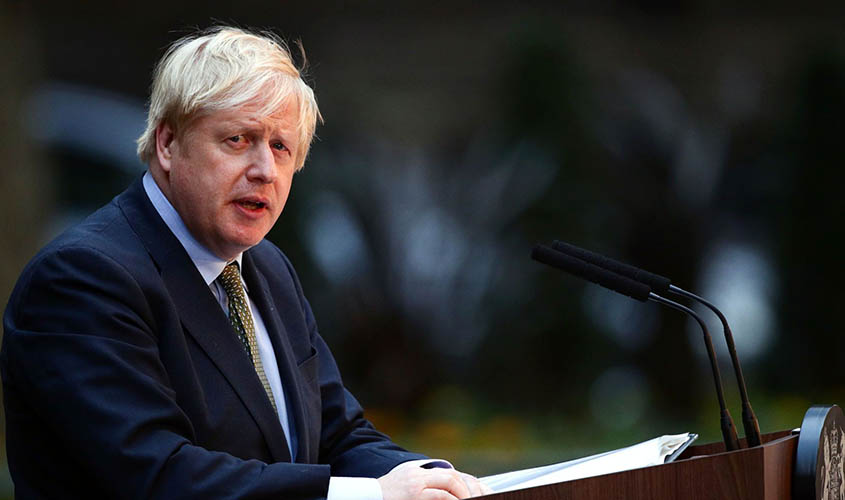Prime Minister Boris Johnson, judging by his visit to Sabarmati Ashram, is an ardent admirer of Mahatma Gandhi. The attitude of his predecessors prior to 1947 and for decades beyond was different. The prejudice against a united subcontinent was why India was divided into multiple countries by Britain before finally making its way out of the previously much larger country. Sri Lanka and Myanmar were sliced away from “British India” even earlier. Before handing over power to the people of India, a final surgical excision was made, this time of a third of the remaining territory through the formation of Pakistan. The first Governor General of India, Lord Louis Mountbatten, ensured that the geographically significant territory that has since been called Pakistan-Occupied Kashmir was left in the grip of the new state. Although history books approved for use by successive governments gloss over this fact, disaffection in the Indian military was a prime cause of making the British leave. The steel frame that held together the British Empire in India was the army, not the civil service, which would have been powerless without the backing of those in uniform. This is why the Commander-in-Chief of the Indian Army had an official residence in New Delhi second only to the palace of the Viceroy of India. The former was taken over by incoming Prime Minister Jawaharlal Nehru in 1947, while the latter was converted into the official residence of the President of India. Both residences were somewhat at variance with the simplicity of the lifestyle of the Father of the Nation, Mahatma Gandhi. While Gandhiji continued to live in simplicity, the leader he had nurtured as his choice for the Prime Ministership had different ideas. This included economic policy. A different choice for the Prime Ministership would have been Sardar Patel, whose views on policy tallied with facts rather than idealistic expectations that remained unrealised. Another inspirational choice would have been Dr Bhimrao Ramji Ambedkar. The brilliant B.R. Ambedkar came from a humble background and worked his way up the scholastic and later the political ladder by sheer force of intellect. Ambedkar as PM would have had a focus on the poorest in society. While Nehru did not care about the rich, blocking many of them from developing private enterprises, and levying higher and higher rates of taxation on them, his affinity towards the Soviet model was not the medicine needed to reduce poverty. Significant gains in that sphere had to await the reforms introduced by Prime Minister Narasimha Rao in 1992. There is no record of the leaders of the Congress of that period expressing their opposition to the breaking away of Sri Lanka and Myanmar from India. A few who opposed the 1947 Partition, but finally decided to accept a country that had systematically been reduced by London in territory over the previous 15 years.
Simply put, the British establishment did not trust the Congress to be sensitive to its interests, given that in Britain’s darkest moments (at the hands of first Germany and later Japan), the Congress leadership was less than enthusiastic about supporting in that conflict a country whose leadership refused to commit to leaving India for the population there to rule. The steel frame of the Indian Army assisted the Allies to prevail over the Axis. To this day, the fact that at Gallipoli, for instance, only the Indian Army was successful against the Turks in the First World War, or that in Assam, it was only regiments comprising Indian forces that repelled the Japanese from advancing further into India. The Japanese military had earlier prevailed with ease over British forces in Singapore and Malaya. The saintly Mahatma was always generous, even to those who wished harm on India. He is reported to have not been opposed to Jinnah’s demand for a land corridor between
MDN
Boris, make India, UK FTA a reality
इस शब्द का अर्थ जानिये
- Advertisement -

